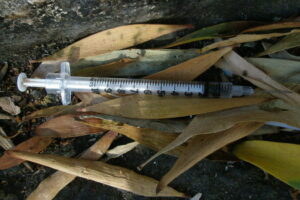I once heard a recovering alcoholic say: “Guilt is what I feel when I say to myself: ‘I made a mistake’. However, Shame is what I feel when I say to myself: ‘I AM a mistake’”.
When it comes to self-shaming, nobody is better at it than alcoholics and addicts, although society does a pretty good job of shaming us too. Most of the intentional suicides (not accidental overdoses) that occur in the wake of addiction and early Recovery involve Shame as a major contributing factor in the suicide. Many shame-based suicides occur in early Recovery. When they are asked, recovering patients in rehab centers identify Shame as a predominant feeling in a majority of cases.
This is why, when giving tough feedback to someone in early Recovery, it is important to make clear to the alcoholic/addict that it is the disease that is being attacked and not the person. Personal attacks are unacceptable and damaging. They will only intensify the alcoholic/addict’s already disproportionate feelings of shame. Though somewhat clichéd, the saying “we are good people with a bad disease” is nevertheless completely valid and applicable. Similarly, so is the often-repeated quote “we are not responsible for our disease, but we are responsible for our Recovery”. This hopefully would reassure those who view the disease concept of Addiction as a free pass to irresponsible behavior. One of the most challenging aspects of successful treatment is effectively neutralizing the disease without shaming the patient’s core identity.
Society can help by changing its attitudes in courts, jails, police precincts, workplaces, families; on TV, in the press, literature and film. The Recovery community itself, at times, needs to remember the distinction between personal (shaming) attacks and confronting the disease. It is not always easy. It is a fine balance.
Addicted health professionals are particularly good at self-shaming. Their fears around returning to work after a long period of absence and having to face their colleagues are often crippling. Shame cripples them. They need to be reminded that while most colleagues wish them well, they don’t spend an inordinate amount of time obsessing over them. The occasional ill-wisher (with perhaps latent issues of his or her own regarding addiction) should not be given undue importance by the returning health professional, now in Recovery.
While Resentments and Fears are given a lot of attention in the moral inventories of 12-step meetings (as they should), feelings of Shame are often ignored. This is regrettable.
In conclusion, treatment providers, family and friends always need to ask the alcoholic/addict about Shame because this feeling carries a high risk of suicide and a higher potential for relapse if left untreated. The Disease concept of substance dependency, if it were thoroughly understood by all the relevant players (governments, courts, prisons, the health care system, the police, and the alcoholic/ addict and his/her family), would be the best antidote to Shame. Conquering Shame as we admit the First Step of powerlessness allows us to enter the sunshine of today.




1 Comment
Leave your reply.